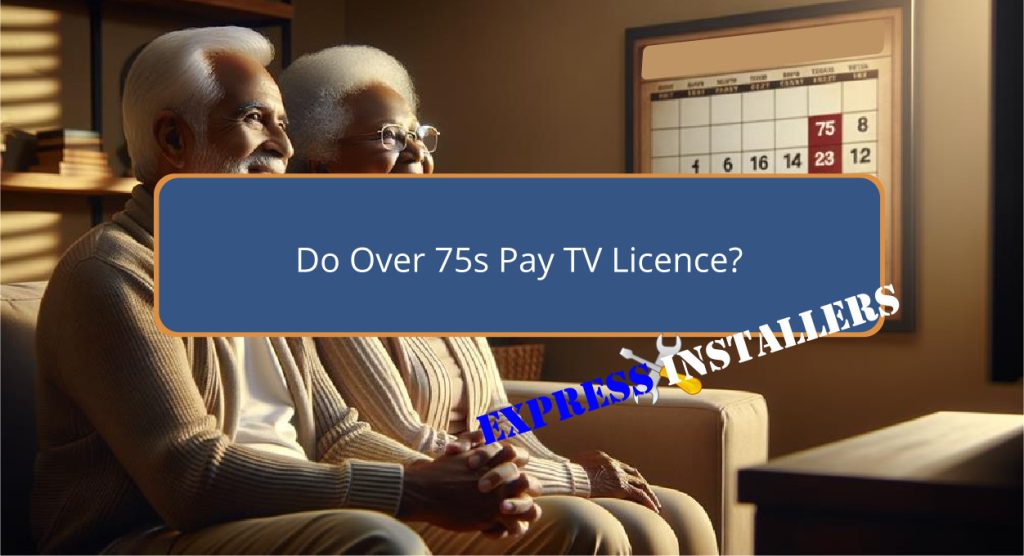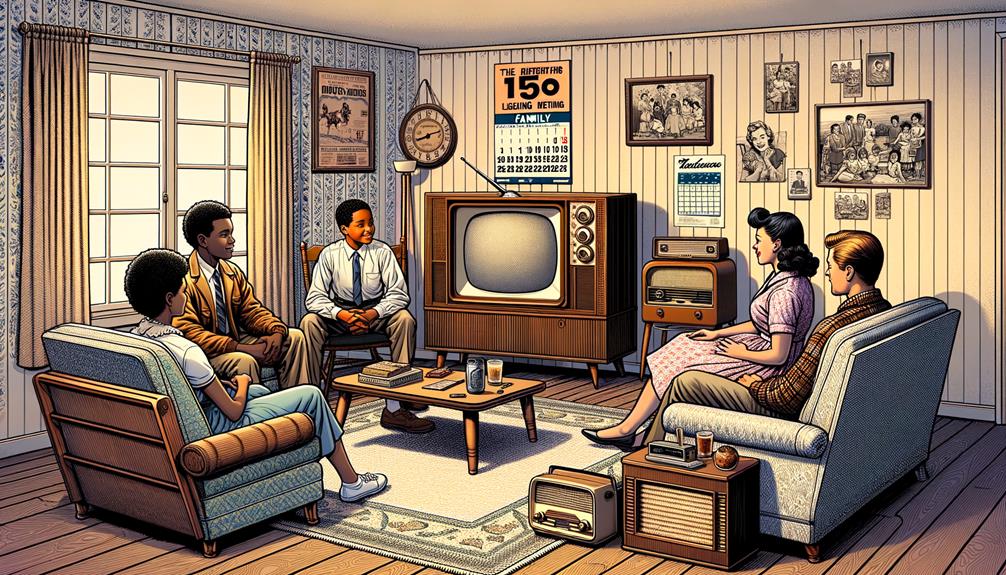
In the United Kingdom, as of June 2020, individuals over the age of 75 are generally required to pay for a TV licence.
This policy shift, stemming from budgetary and demographic considerations, overturned the previous exemption in place for this age group.
However, there is an exception for those who receive Pension Credit, enabling some of the most financially vulnerable older people to maintain access to television services without the burden of this fee.
The introduction of this requirement has sparked discussions on the balance between fiscal sustainability and social equity, highlighting the need to continuously assess the fairness and impact of such policies.
Further exploration of this topic uncovers deeper implications and ongoing debates.
Quick Summary
- As of the latest policies, only older people over 75 who receive Pension Credit are eligible for a free TV licence.
- Older people over 75 not receiving Pension Credit must pay for a TV licence.
- The TV licence fee helps fund public broadcasting services, including channels, radio stations, and online services.
- The eligibility criteria aim to target financial assistance to the most vulnerable older people, balancing social equity.
- The application process for a free TV licence requires proof of age and receipt of Pension Credit.
Historical Context of TV Licences

The concept of the TV licence, introduced initially to fund public broadcasting, has evolved greatly since its inception in the early 20th century.
Originating as a means to regulate radio broadcasts, the license inception marked a pivotal shift towards structured broadcasting funding mechanisms.
Over time, this approach was adapted to include television services, reflecting the changing landscape of media consumption.
The enforcement evolution of the TV licence system has been significant, moving from a simple honour system to a more complex structure involving active monitoring and penalties for evasion.
This transformation underscores the efforts to adapt regulatory frameworks to technological advancements and changing public viewing habits, ensuring continued support for public broadcasters in the face of evolving challenges within the media sphere.
Changes to the Over-75 Rule
Reflecting broader trends in policy and demographic shifts, recent years have witnessed significant changes to the rules regarding TV licence fees for those over the age of 75.
These adjustments are largely driven by the increasing longevity and the resultant impact on public funding models.
As the demographic trends continue to showcase a rising older population, the fiscal sustainability of previous policies providing free licences to this age group has come under scrutiny.
The policy implications are profound, influencing not only budget allocations but also social equity considerations.
Policymakers are tasked with balancing the financial constraints of the broadcasting services against the benefits of ensuring access to information and entertainment for older people, a challenge that continues to evolve with the demographic landscape.
Current Eligibility Criteria

Current eligibility criteria for TV licence fees for individuals over 75 have become more stringent, now requiring that they meet specific conditions to qualify for exemptions.
The primary factor involves income verification, ensuring that only those with limited financial resources are exempted.
The application process has been designed to be thorough yet accessible, involving several steps that must be meticulously followed to ascertain eligibility.
| Criteria | Description | Importance |
|---|---|---|
| Age Requirement | Must be over 75 years old | Mandatory |
| Income Verification | Assessment of financial resources | Critical |
| Application Process | Detailed steps to verify eligibility | Essential |
| Documentation | Required proofs like ID, income statement | Necessary |
This structured approach aims to balance fairness with accessibility, focusing on the most vulnerable older people.
Financial Impact on Older people
Understanding the financial impact on older people under the new TV licence fee criteria reveals significant challenges for those with fixed incomes.
The implementation of these fees can strain budgets, especially for those primarily dependent on retirement savings.
Discounts often do not compensate adequately for the overall expenses older people face.
Analysing the data, it’s evident that additional costs like the TV licence fee could divert funds from essential healthcare or nutrition needs.
Additionally, the fixed nature of most older peoples’ incomes means that adapting to new financial requirements poses a real hardship.
This demographic typically lacks the flexibility to increase their income, making them particularly vulnerable to any new financial obligations or increases in existing ones.
Arguments for Free Licences

Advocates for free TV licences for those over 75 argue that this policy would alleviate financial pressures on a vulnerable demographic already burdened by fixed incomes and rising living costs.
They emphasise that vital concerns necessitate such measures, as unequal access to television can exacerbate social disparities.
Television serves not only as a source of entertainment but also as an essential conduit for staying informed about public affairs, health advisories, and remaining connected with societal developments.
Granting free licences could greatly enhance social integration among the older people, reducing feelings of isolation and exclusion.
This policy, hence, supports not only financial relief but also fosters a more inclusive society where age does not limit access to information and social participation.
Arguments Against Free Licences
While there are compelling reasons to support free TV licences for those over 75, there are also significant arguments against this policy that merit consideration.
- Economic Impact: The financial burden on the licensing authority can be substantial, potentially affecting service quality for all.
- Legal Objections: Providing free licences based on age alone could be seen as discriminatory under equality and non-discrimination laws.
- Demographic Fairness: This policy might foster intergenerational inequity, as younger demographics bear the financial load.
- Sustainability Concerns: With an aging population, the cost of maintaining free licences could escalate, challenging the long-term feasibility of this benefit.
These points underscore the complexity of implementing a policy focused solely on age, emphasising the need for a balanced approach.
Government and BBC Agreements

The agreements between the government and the BBC play a pivotal role in determining the policies related to TV licence fees for individuals over the age of 75.
These agreements are fundamentally shaped by funding negotiations that seek to balance the BBC’s operational needs with government budgetary allocations.
Analysing these interactions reveals a complex landscape where policy sustainability is a key concern.
Sustainability within this framework refers not only to financial aspects but also to public acceptance and demographic changes.
Each negotiation cycle can potentially alter the provisions for older people, reflecting broader economic pressures and shifting public policy priorities.
Hence, the outcomes of these negotiations are critical for ensuring that the policy remains viable and equitable.
Alternatives to Traditional TV
Exploring alternatives to traditional TV, such as streaming services and digital platforms, reveals a shifting landscape in media consumption that potentially impacts licensing policies and viewer demographics.
As audiences increasingly turn to non-traditional formats, the relevance and adaptation of existing models are called into question.
Here are some key alternatives:
- Streaming Services: Platforms like Netflix and Hulu offer extensive libraries of on-demand content.
- Online Platforms: YouTube and Vimeo provide user-generated content alongside professionally produced videos.
- Subscription-Based Models: Services such as Amazon Prime and Disney+ integrate merchandise and streaming.
- Digital Broadcasting: Internet-based live TV services like Sling TV and PlayStation Vue mimic traditional broadcasting but with greater flexibility.
These alternatives reflect a broader trend towards personalised, on-demand media consumption, challenging the traditional TV landscape.
Future of TV Licence Policies

Anticipating the trajectory of TV licence policies necessitates a careful examination of emerging media trends and viewer preferences.
As we move forward, digital taxation and policy evolution are key elements that will shape the future landscape of broadcasting finance.
The shift towards on-demand and streaming services challenges the traditional TV licence model, prompting a revaluation of how these fees are imposed and collected.
| Trend | Impact on Policy | Considerations for Future Policy |
|---|---|---|
| Increased Streaming | Decrease in traditional TV viewership | Adapt policies to encompass digital content |
| Viewer Demographics | More diverse viewer needs and habits | Personalise licence models based on usage |
| Digital Taxation | New revenue streams | Guarantee fair taxation across platforms |
| Global Influences | International policy trends | Harmonisation with global standards |
| Technological Advancements | Easier tracking and enforcement | Utilise technology for efficient management |
These factors suggest a significant transformation in TV licence policies, aiming for more adaptable and technologically integrated approaches.
Frequently Asked Questions
Can Over-75s Receive Discounts on TV Licence for Multiple Residences?
Over-75s seeking discounts on TV licences for multiple residences face joint ownership implications and residence verification challenges, necessitating thorough documentation and potentially complex eligibility assessments based on their specific living arrangements and ownership status.
How Does a TV Licence Impact Credit Scores for Older people?
A TV licence generally does not impact credit scores, as it is not a form of credit. Finances remain unaffected regarding credit implications from the payment or non-payment of a TV licence.
Are There Penalties for Late TV Licence Payments for Older people?
Older people may face penalties for late TV licence payments, although grace periods and payment extensions can be available. It’s important to review specific policies to understand potential financial implications and avoid fines.
Can Relatives Pay the TV Licence Fee on Behalf of an Over-75 Senior?
Yes, relatives can pay the TV licence fee on behalf of an over-75 senior. Payment methods include direct debit or one-off payments, ensuring the process adheres to gift eligibility requirements and regulations.
Is There a Reminder Service Available for Older people to Renew Their TV Licence?
Yes, older people can access a reminder service to renew their TV licence. This service typically offers various notification options, including reminder setup via email or SMS, ensuring timely renewals and continuous service access.
Conclusion
In summary, the revision of TV licence policies for individuals over 75 has sparked significant debate.
The financial burden on older people and the shifting dynamics of media consumption necessitate revaluating existing frameworks.
It is essential that future policies balance fiscal sustainability with accessibility to public broadcasting services.
Continuous dialogue between the government, broadcasting entities, and the public will be vital in shaping a fair and adaptable TV licence system amidst evolving technological landscapes.
